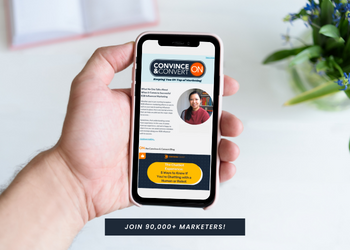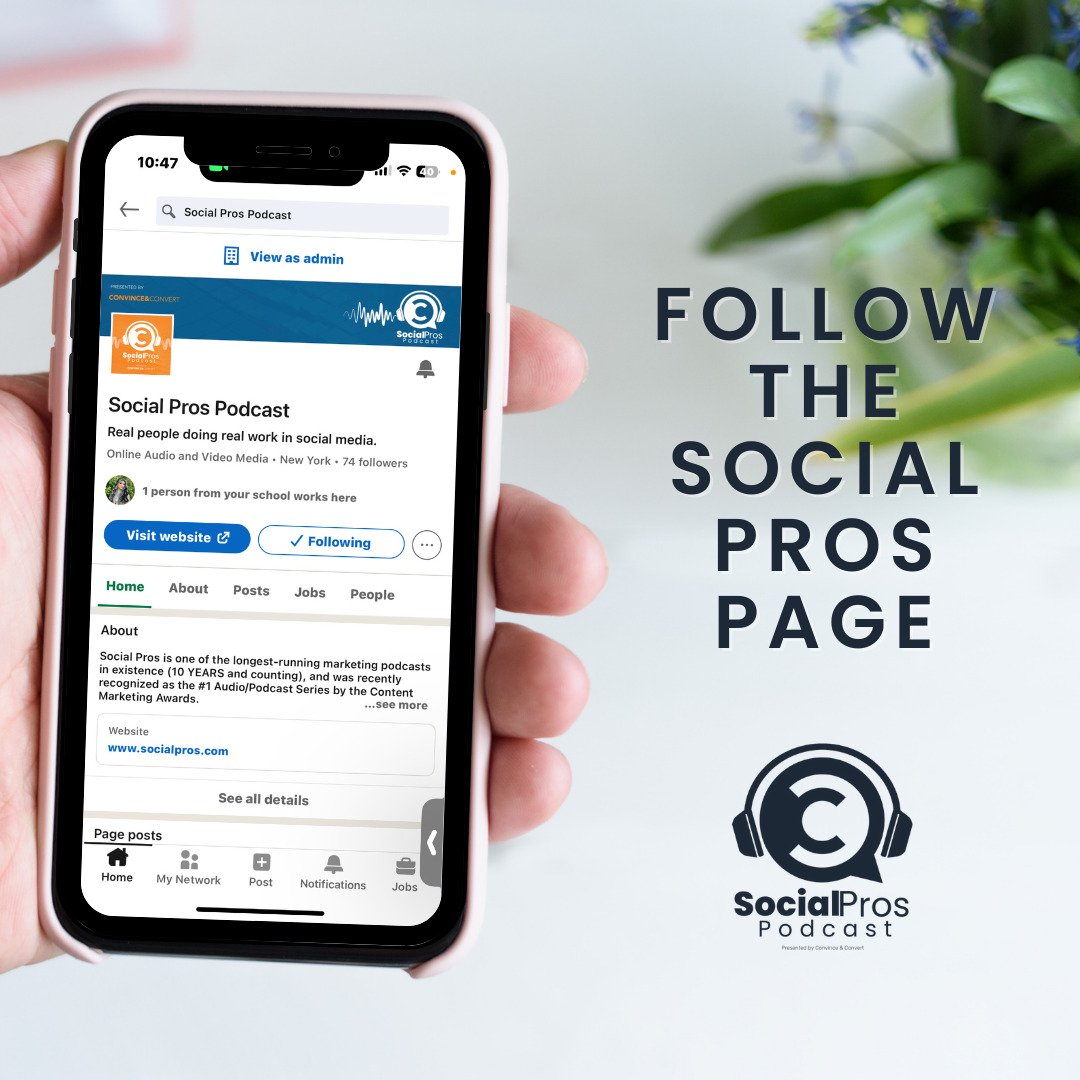Subscribe to our new Definitive newsletter: High grade digital marketing guidance, topically sorted, and curated to the max.
You pick the categories, we deliver the content. The best content from around the web, on topics you care about and need to be an expert in.
It’s not an illusion. We really are doing more with each 24 hours, as technology enables (or forces) us to interact and intersect and do and consume with unprecedented volume and vigor. We live our lives at breakneck speed because we can, because we feel we have to keep up, and because every macro and micro breeze blows in that direction.
I remember the days before social media when I would get 20 phone calls per day and 50 or 60 emails, and felt exhausted by the pace of communication. Now we’ve traded the telephone for other connection points (I only get 2-3 calls per day), but the overall number of people ringing our doorbell through some mechanism has ballooned like Charles Barkley.
The number of “inboxes” we possess is staggering: Email (3 accounts for me), public Twitter, Twitter DM, public Facebook, Facebook messages, Facebook chat, Linkedin messages, public Google +, Google + messages, blog comments, Skype, text messages, Instagram, phone, voice mail, and several topically or geographically specific forums, groups and social networks. That’s a lot of relationship bait in the water.
The Lie of Opportunity
How do we justify this? How do we convince ourselves that slicing our attention so thin the turkey becomes translucent is a good idea?
We do it because we believe that more relationships provides more opportunity.
“It’s not what you know, it’s who you know.”
“Social media makes a big world smaller.”
“Linkedin is for people you know, Facebook is for people you used to know, Twitter is for people you want to know.”
All of these chestnuts are passed around like a flu strain because they make intuitive sense. But common among them is the underlying premise that interacting with more people is inherently better than interacting with fewer people. I have always believed this to be true, and in fact have delivered the lines above in presentations and on this blog. But today, I’m no longer convinced.
Instead I wonder, what if we have it ALL wrong?
You Don’t Know Jack
In addition to despair and shock and surprise, what I felt most about the death of Trey Pennington was confusion. I found myself saying over and over “Geez, you think you know someone…” I had a similar reaction when another colleague committed suicide a couple years ago and very few people saw it coming.
The reality is, we don’t KNOW hardly anyone.
I interacted with Trey quite a bit online, and twice spent time with him in three dimensions. Trey was one of the kindest, most interesting, generous people I’ve ever met. He was truly one of the good guys in social media, and his background in theology and storytelling gave him a refreshingly different outlook on all of this. He will be missed, and if the outpouring from the social media community is any barometer, his impact on others was perhaps far greater than he knew.
I considered Trey Pennington a friend. I suspect many of his 100,000+ Twitter followers considered him a friend. Clearly, most of us were not his friends, as his death came as a complete surprise despite the fact that he had a prior suicide attempt earlier this summer, and had been discussing his problems with confidants.
But if you’d asked me yesterday morning, I would have said Trey was a friend. Social media forces upon us a feeling of intimacy and closeness that doesn’t actually exist.
I met Amber Naslund on Twitter and we wrote a book together. But, I’ve never met her daughter.
Jason Falls is one of my closest colleagues in social media, but he’s never been to my home.
Mike Stelzner and I have collaborated on many projects, but we’ve never had a private meal.
I consider these people (and many, many others) to be friends, and I’m thankful that social media has brought them into my life. But in comparison to my pre-social media friends (many of whom I’ve known for 30+ years), I know almost nothing about them.
Is that what we want – spending considerable time building large networks of shallow connections, potentially at the expense of deepening a few cherished friendships upon which we can truly rely?
I recognize this is not purely an either/or scenario, and relationships that began with a Twitter exchange or series of blog comments can flourish into treasured real-world ties. Mark W. Schaefer was a real friend to Trey, and had tried to help him through this difficult period. Mark and Trey met on Twitter, and Mark describes the impact of this connection in his excellent book The Tao of Twitter. (Mark also has a tremendous post about Trey’s death, and Olivier Blanchard’s tribute to Trey is moving and important).
But those situations where we “meet” someone through social media, have the opportunity to interact in real life, and then develop a relationship that creates true friendship are few and far between. And as social media gets bigger and more pervasive, this chasm becomes even more difficult to cross. As my own networks in social media have gotten larger, I’ve ended up talking about my personal life less, because a large percentage of that group don’t know me, or my wife, or my kids, or my town, or my interests. I don’t want to bore people with the inanities of the everyday. (Facebook is the one exception, as I’ve always kept my personal account relatively small).
To some degree, I think this explains the popularity of Google + among people with very large followings on Twitter and/or Facebook. Google + provides a chance for a do-over, to create a new group of connections that are more carefully cultivated.
But that’s just medicating the symptoms, not curing the disease. Fundamentally, technology and our use of it isn’t – as we’ve all hoped – bringing us closer together. In fact, it may be driving us farther apart, as we know more and more people, but know less and less about each of them.
Trey gave us a glimpse of this in his last tweet:

and Trey’s friend Jim O’Donnell underscored it with his message on Trey’s Facebook page:
“To my friend Trey Pennington, one of the worst things about social media is we can be surrounded by so many and still feel completely alone.”
Making Friends Out of Connections
Maybe we should be focused less on making a lot of connections, and focused more on making a few real friends? I’m going to try to work on this, to identify people (including the three above) with whom I want to develop real friendships, and make a concerted effort to do so, even if it means answering fewer tweets and blog comments from a much larger group of casual connections.
We have to take at least some of these social media spawned relationships to the next level, otherwise what’s the point beyond generating clicks and newsletter subscribers?
You think you know someone, but you don’t. And that’s social media’s fault. But more so, our own.

